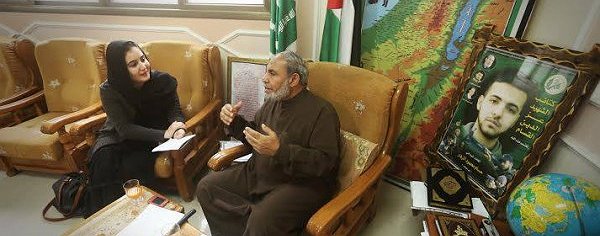I’ve interviewed many "controversial" figures, including ISIS members in Gaza, and Jalila Dahlan, the wife of former Fatah official Mohammed Dahlan, and Hamas leaders Mahmoud Zahhar and Mousa Abu Marzouq. But I also interviewed writers, artists and intellectuals such as the late Haidar Abdul Shafi, Egyptian writer Nawal Sadawi and American novelist Alice Walker.
A journalist must not allow the interviewee to monitor or control her work
The worst interviews are those where a group of journalists conduct the interview together with a senior figure. Female journalists are usually overlooked and reporters compete to be the first to publish. This happened to me at the start of my career, when I was invited to interview Mohammed Dahlan, the head of security in Gaza. I didn’t publish the interview because three other journalists got there before me.
It’s also difficult when an interviewee demands to see your piece before it is published. If you allow them to read it, they might retract or try to modify its content, and then you have a dilemma: do you insist on publishing the article in its original form? Or do you publish what the interviewee wants? This happened to me in 2007 when I interviewed the Minister of Culture appointed by Hamas. He practically withdrew the interview and gave me an alternative version as if I was working for him. Therefore, a journalist must not allow the interviewee to monitor or control her work.
Another thing I have learned is that if the interview has been set up indirectly (i.e.: with the help of outside mediators), then it’s worth checking the interviewee’s identity and making sure they are who they claim to be. Once, I interviewed someone from who was purportedly from ISIS. The interview took place under heavy security and in an anonymous location. But in the end, all he came out with were Quranic verses and old slogans. I couldn’t extract any important information at all.
